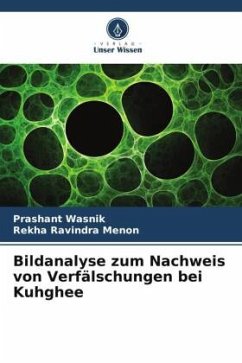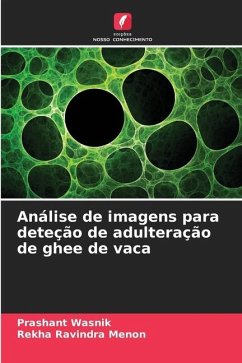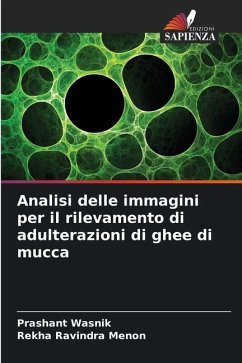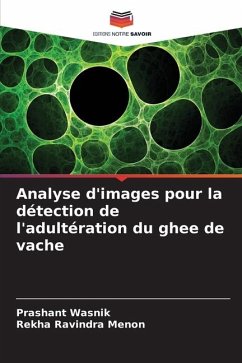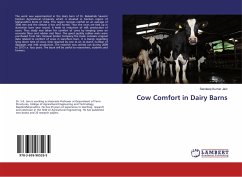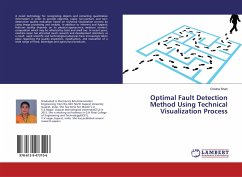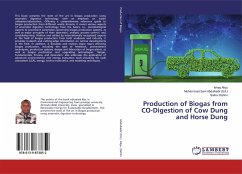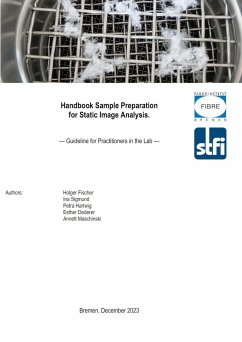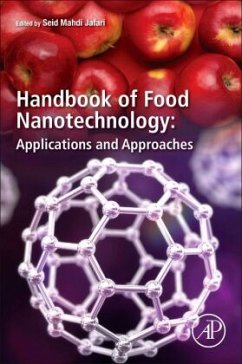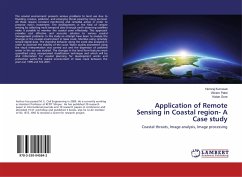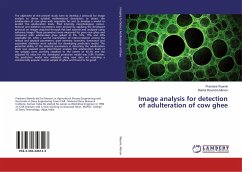
Image analysis for detection of adulteration of cow ghee
Versandkostenfrei!
Versandfertig in 6-10 Tagen
46,99 €
inkl. MwSt.

PAYBACK Punkte
23 °P sammeln!
The objectives of the present study were to develop a protocol for image analysis to derive suitable mathematical descriptors to detect the adulteration of cow ghee with vegetable fat and to develop a model to predict the adulteration levels. Pixel intensity, morphological, colour, textural and skeleton parameters were derived by applying the developed protocol on images acquired through flat bed scanner.and analysed using software ImageJ These parameters were measured for pure cow ghee and compared with adulterated ghee spiked at 5%, 10%, 15% and 20% vegetable fat. After a careful examination...
The objectives of the present study were to develop a protocol for image analysis to derive suitable mathematical descriptors to detect the adulteration of cow ghee with vegetable fat and to develop a model to predict the adulteration levels. Pixel intensity, morphological, colour, textural and skeleton parameters were derived by applying the developed protocol on images acquired through flat bed scanner.and analysed using software ImageJ These parameters were measured for pure cow ghee and compared with adulterated ghee spiked at 5%, 10%, 15% and 20% vegetable fat. After a careful examination of intercorrelation among the textual and physical parameters, pixel intensity, branches, luminance and equivalent diameter were selected for developing prediction model. The potential ability of the selected parameters in detecting the adulteration levels was assessed using discriminant analysis. The adulteration levels of the samples were correctly classified to the extent of 92.2% and the adjusted R2 value for the developed prediction model was 0.94. Further, the prediction model was validated using new data set including a commercially popular market sample of ghee and found to be good.



